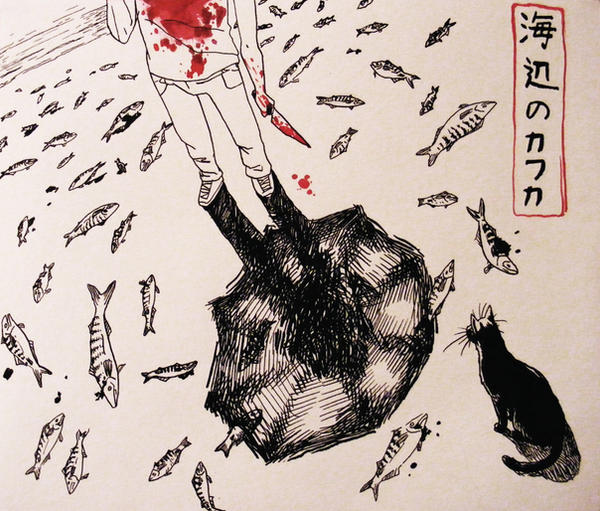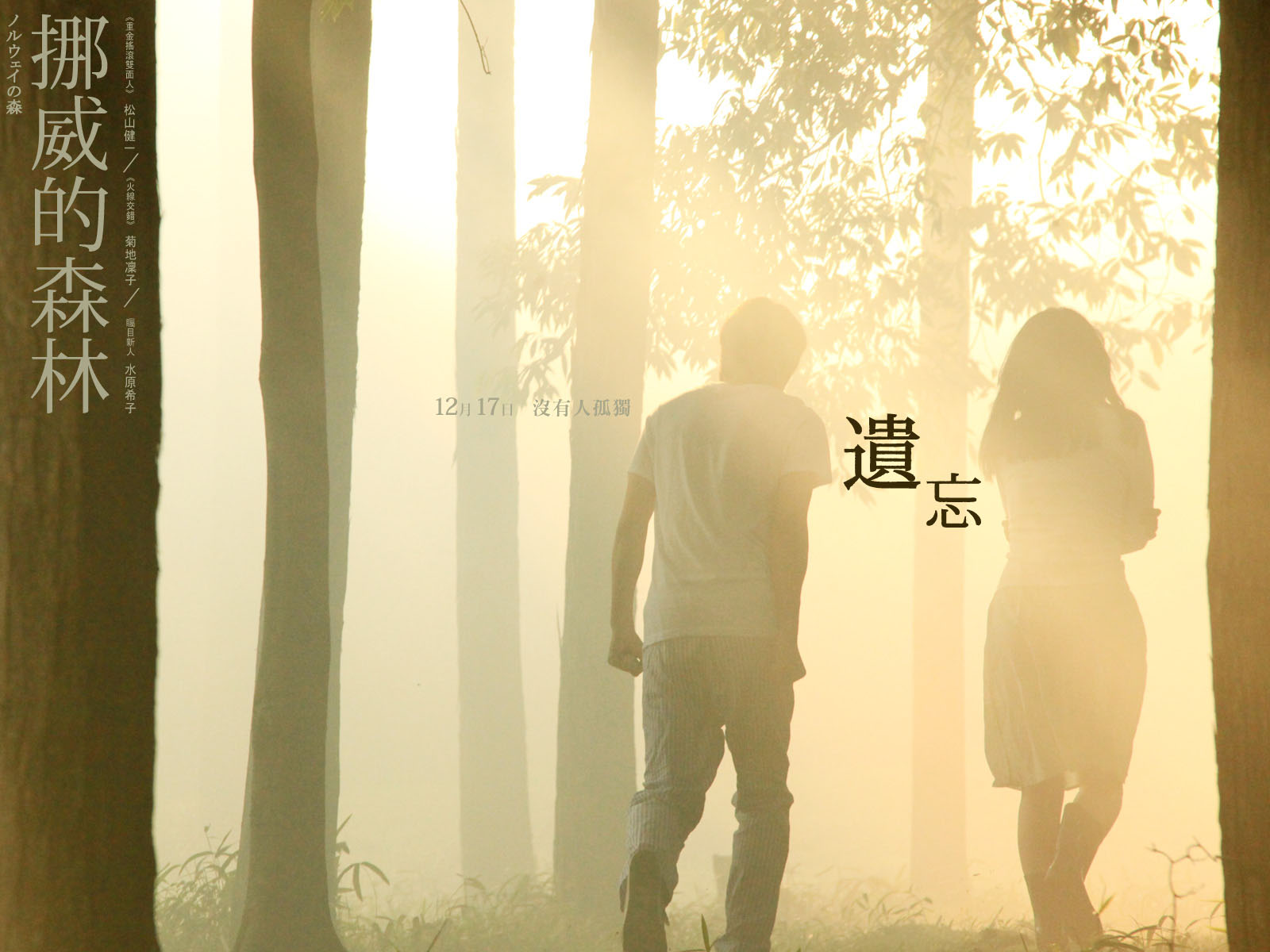In all his books Murakami's exploration of natural places is incredibly evocative and physical, but they're also dreamlike as though, in these unstable places, something crazy could be chucked at your face any minute without warning.
Norwegian Wood represented Murakami's foray into the world of the 'normal', there's no magic realism and a very strong feeling of autobiography about it, but while it's probably his most well known novel it isn't the one I'm most interested in for this discussion; it will be taking a back seat. I just used as a ploy it to get you reading, muahahah!... please don't go.
Hardboiled Wonderland and the End of the World
A massive imposing gate keeper keeps the protagonists shadow in a basement (he can't leave without his shadow) while he is tended to by a girl with no soul, looks inside unicorn skulls in a library and slowly goes blind.
It does make more sense than this when you read it (just). But the aspect I want to focus on is the oppressive terror you feel from the surrounding woods. Even when you look at the map you think 'sod trying to get through the woods, there's defo wolves in there'.
Two of his other books I know of Wild Sheep Chase and Kafka on the Shore reach their climax in the wilderness (in one instance literally, teehee).
Wild Sheep Chase
This sets the tone of moving further into territory not suitable for people.
In the end our protagonist is left alone in a salubrious but eerie lodge working his way through the available literature until, after falling asleep on the sofa, in the dead of night and the freezing cold he is visited by the ghost of his friend. This isn't scary really, but creepy in a more gripping an insidious way.
Kafka on the Shore
 Needless to say he does venture in and all kinds of crazy shit happens. But even before he enters the deep woods, the cabin is so isolated the sense of vulnerability is almost overwhelming. It's only tempered by the fact that its beautiful there.
Needless to say he does venture in and all kinds of crazy shit happens. But even before he enters the deep woods, the cabin is so isolated the sense of vulnerability is almost overwhelming. It's only tempered by the fact that its beautiful there.Just to touch on Norwegian Wood, the isolated retreat for the mentally ill is where (spoiler coming) the main female character ends her life. The forest is a popular suicide spot, but to steer away from total morbidity, this might be because of its beauty rather than it making people feel rubbish.
Beautiful, mysterious and isolating generally sums up Murakami's presentation of the wilderness. While I love finding out about nature the mythical, unsettling quality of it is also of great appeal to me.
I also love weird things like Murakami because they make my head explode....... elephants




No comments:
Post a Comment